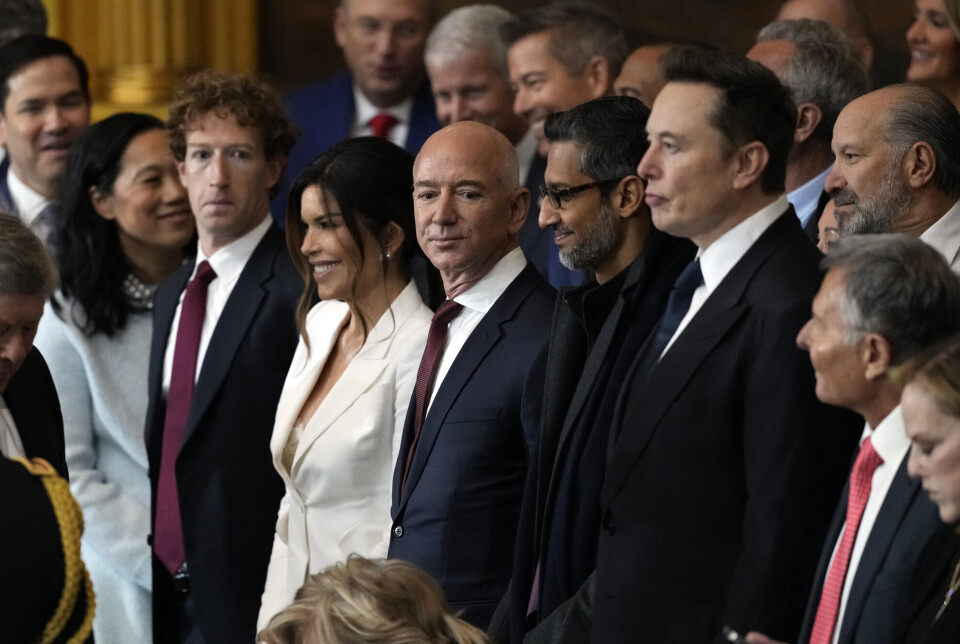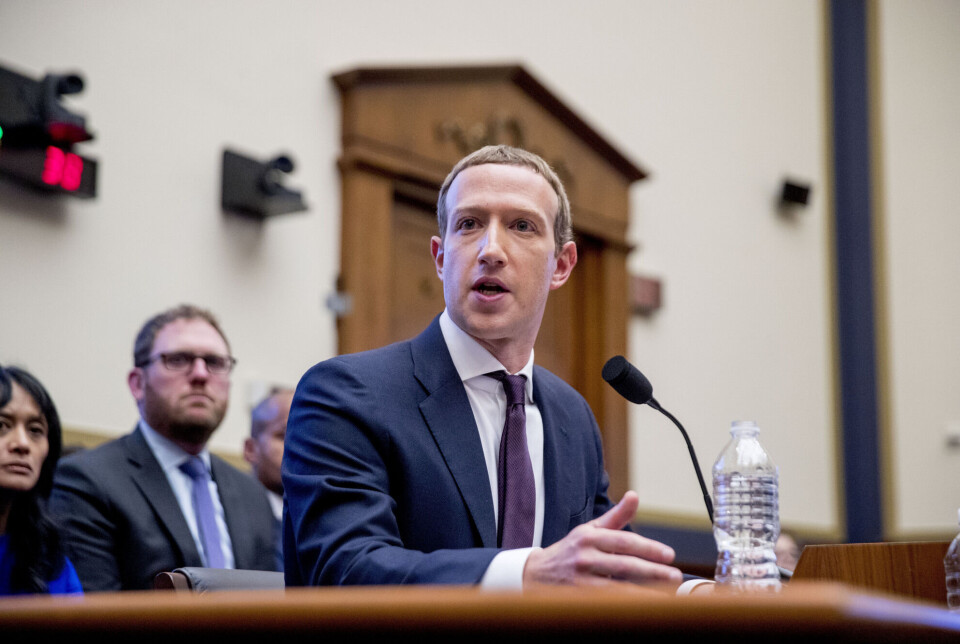Should Europe build its own social media?
Almost all the social media platforms Europeans use are American. Should Europe have its own social media?

Lots of us visit various digital services from American tech giants during the course of a day.
Maybe you use a Windows PC at work or an iPad at school. In your pocket, you have a smartphone powered by American software: either Android from Google or iOS from Apple.
We connect on social media through our assorted devices. Around eight out of ten Norwegians use social media every single day. The proportion is even higher among younger people, according to the Norwegian Media Barometer survey from 2023. By far the most popular platforms are the American Meta products Facebook and Instagram, the American Snapchat, and the Chinese TikTok.
AI would not exist if it weren't for Facebook, Twitter, and other social media.
Paul M. H. Buvarp, researcher at the Norwegian Defence Research Establishment
Both Meta and Alphabet, which owns Google, are on the top ten list of the world's most valuable companies, according to the statistics site Statista.com.
Where is Europe in all of this? None of the popular social media platforms that most people use every day are provided by European tech companies.
Several researchers believe this presents security policy challenges. It sends valuable data out of our own regions, and it opens the door to foreign influence.
Should Europe increase efforts to establish its own social media?
Europe needs its own social media, according to researcher
Yes, but with some major reservations, argues Paul M. H. Buvarp. He is a senior researcher in propaganda, disinformation, and national security at the Norwegian Defence Research Establishment.
A key reason for having local alternatives to popular American social media is access to data, according to Buvarp.
He points out that access to data and large amounts of information is part of the foundation for developing large AI models.
“AI would not exist if it weren't for Facebook, Twitter, and other social media. These models are trained on content of varying quality, posted by everyday people like you and me,” he says.
Buvarp says that there is tremendous power in all this data, which is becoming increasingly clear, especially after the last US presidential election.
Protecting their own data
“If you look back at Donald Trump’s inauguration, you can see that some members of his administration had understood the power that lies in controlling large internet platforms. In the second row, right behind Trump's own family, you can see Jeff Bezos, Musk, and Zuckerberg,” says Buvarp.
Jeff Bezos is the founder of the American tech company Amazon.com. On the same row, directly behind Trump, sat X-owner Elon Musk and Facebook founder and Meta CEO Mark Zuckerberg.
Buvarp points out that tech companies are now guarding their own data more closely than before – a form of data protectionism.
He notes that Elon Musk's acquisition of Twitter, now called X, led to a massive increase in the price of accessing its data.

It was once free for researchers to access this data, but that has changed in recent years. In 2023, the monthly cost to extract data was over 40,000 USD, according to the tech magazine Wired.
“So access to your own data is a strong argument for having your own platforms,” he says.
From both an economic and a security perspective, the future looks bright for those who have access to computing power and the right kind of data – that is, data that can be fed into AI models, says Buvarp.
"Europe may have dozed off"
Exactly why the US and China have become so dominant on the internet is a complex story.
“Europe may have dozed off,” says Buvarp.
He believes the reason is a mix of politics and priorities. As a result, Europe has become deeply dependent on American tech services.
This dependency could have implications for national security, argues Carl Heath. He is a researcher at the RISE Research Institutes of Sweden, which specialises in digital threats to democracy.
Heath describes an extreme – but, according to him, not entirely unlikely – scenario in the Swedish Forskning & Framsteg magazine:
A future US administration in conflict with the EU might pressure American tech companies to cut back their services in Europe or use their digital influence for political purposes.
Buvarp agrees that this is no longer far-fetched and that there are multiple security policy concerns at play.
He points to the debate surrounding the possible TikTok ban in the US under President Biden. The concern was that TikTok could be used to collect data on American citizens and theoretically influence them.
“One scenario could be a slight shift in the content on your feed, where 10 per cent more of the videos you see from the US show riots, while 10 per cent more of the videos from China show beautiful idyllic scenes,” says Buvarp.
But is creating new social media platforms really a good idea?
Would European social media just create more division?
Part of the problem with today's social media is that the American tech companies control what we are shown, according to Buvarp.
“Whether it's memes, news, images, or other content, it helps shape our view of the world and what kind of narratives are promoted. To address the major issues of disinformation and other issues, you'd have to shut down the internet,” he says.
There is of course no chance of that happening, he notes.
So perhaps the better solution is to develop European platforms rooted in local values and perspectives.
“But there's a risk that it could lead to even more division, between the new platforms and the old ones,” he says.
Lots for Europe to catch up on
Another challenge is the huge head start that American platforms have. YouTube and Facebook are nearly 20 years old and have gone through years of development.
To build real alternatives with mass appeal, Europe would need to compete with powerful, attention-grabbing algorithms – like those used by TikTok, says Buvarp.
“They launched with an extremely aggressive algorithm,” he says.
So, it is possible to challenge American competitors, but it comes at a cost. Buvarp questions whether aggressive social media platforms are truly healthy for people.

“People might become depressed from seeing images of unattainable ideals, retouched bodies, and perfect vacations,” he says.
Buvarp points out that social media platforms do not show us this content because they want people to feel bad, but because it is what users tend to engage with.
Should Europe abandon American platforms?
The magazine Forskning & Framsteg asked Swedish researcher Carl Heath whether Europe should avoid American services.
“No, it's not about everyone boycotting American services – that’s unrealistic,” he told the magazine.
Heath emphasises the importance of building alternatives so that people have real choices, especially for functions that are critical to society.
He compares it to power production: it is fine to import electricity, but you also need your own production to avoid being too vulnerable.
When asked about current alternatives to the dominant platforms, Heath mentions Swiss-based ProtonMail and German-based Mastodon (an alternative to X) as potential European options.
He also highlights independent American platforms like Signal for messaging and Bluesky as another alternative to X.
A new European initiative is EuroStack, a program launched by the EU to boost Europe's industry. This includes developing digital platforms, as well as AI and cloud services.
The question now is whether this will actually lead to more European digital services in the future.
———
Translated by Ingrid P. Nuse
Read the Norwegian version of this article on forskning.no
Related content:

Subscribe to our newsletter
The latest news from Science Norway, sent twice a week and completely free.






































